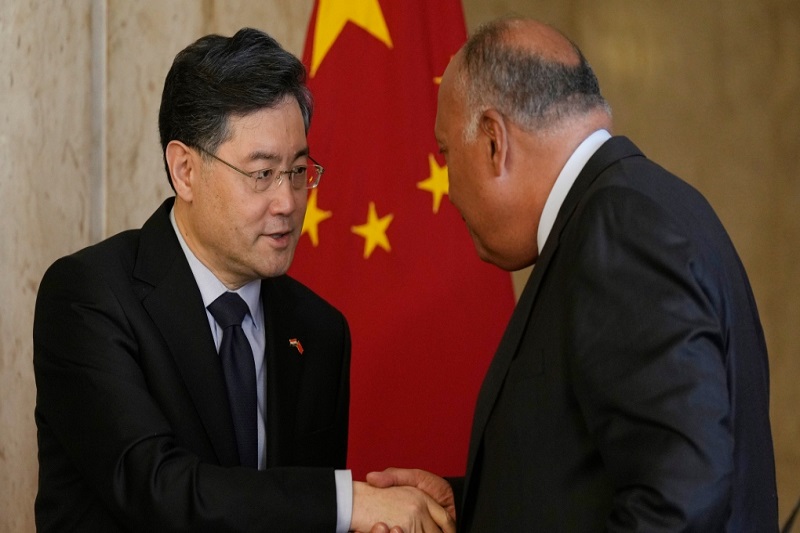Sunday was the concluding stop for China’s top diplomat on a multi-leg journey to Africa that attempts to consolidate Beijing’s imprint throughout the resource-rich continent. While in Cairo, he held talks with Egyptian and Arab League officials, marking the end of his time in Africa. The meeting between the Chinese Foreign Minister Qin Gang and his Egyptian counterpart, Sameh Shoukry, took place, as did separate meetings with Egyptian President Abdel Fattah el-Sissi and Arab League Secretary-General Ahmed Aboul-Gheit. Shoukry said at a joint news conference that the talks were mostly about improving relations between China and Egypt and bringing more Chinese tourists to a Middle Eastern country that has been struggling for years to fix its important tourism industry.
According to both ministers, they talked about regional concerns as well, especially the conflict between Israel and Palestine. Since Israeli Prime Minister Benjamin Netanyahu’s return to power one month ago, tensions have been on the increase. Netanyahu is in charge of Israel’s most conservative and right-wing government, and he is to blame for the recent political upheaval.
Following the visit earlier this year of an ultranationalist Israeli Cabinet official, he also urged for “keeping things as they are” at Jerusalem’s holiest site, which is considered to be the holiest location in all of Jerusalem. Muslims all over the world were very angry about this visit, and the US was also very angry about it.
During his meeting with el-Sissi, the Chinese foreign minister said that Beijing would keep getting more involved in Egypt’s infrastructure projects, especially those that are related to China’s Belt and Road plan. China has contributed billions of dollars to Egyptian state-led projects such as the Suez Canal Economic Zone and the new administrative capital, which is now under construction east of Cairo.
Related Posts
His travels lasted for a week and took him to four different countries: Gabon, Angola, and Benin, in addition to Ethiopia, which is home to the headquarters of the African Union. After being appointed in December, this was Qin’s very first journey outside of the country. Since the start of the modern era, China’s foreign ministers have started their jobs by going to Africa, where the population is growing just as quickly as it is in China.
Roads, energy infrastructure, telecommunications infrastructure, trains, and hospital facilities are just a few of the areas in which Beijing has made significant investments in African countries. According to the Chinese Loans to Africa Database, between 2000 and 2020, Chinese banks and funds loaned a total of 160 billion US dollars to different African countries.
China hurried to deliver vaccines to Africa in the wake of the coronavirus epidemic; nonetheless, the continent received only 1% of the world’s COVID-19 vaccine supplies. China also gave money to help the African Center for Disease Control build a new headquarters in Addis Ababa, the capital of Ethiopia.

